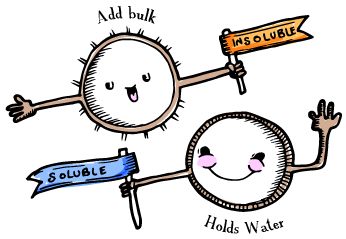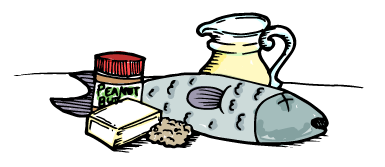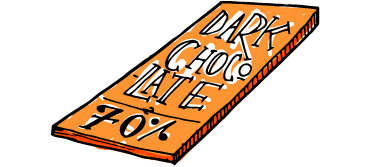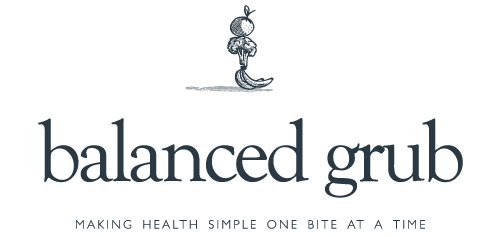If you haven’t read ‘So, what is colonic inertia?‘ please do. This will give you a better understanding of what you are dealing with and will also help explain why I suggest the foods below.
Chronic constipation is not fun for anyone, and when you encounter it on a more than regular basis it will eventually bring you down. Like I mentioned above many people have different levels of colonic inertia. Because the bowel is slow and sluggish it takes longer than average to reach the rectum for excretion. It will sit in the large intestine for a long period of time and this is where the body will extract moisture from the stool and use it elsewhere in the body, resulting in large and hard stools which are painful and difficult to pass. In this diet our aim is to keep the bowel moist for longer while also speeding up the transit time.
With most colonic inertia sufferers there can be many other underling problems such IBS on top, which also creates constipation, SIBO which, if your body creates methane gas will result in constipation. Before changing your eating habits, I would go and speak to your gastroentologist before and check to see if there is any other issues you need to take care of, otherwise you may not benefit from this guide.
Beware of Fiber
I’m going to get this one out the way first. The most misconceived notion that fiber will fix all your problems is a big no! The fact is everyone needs fiber to live it is a very important part of our nutritional intake. The recommended daily allowance is 25g. However if you suffer with colonic inertia eating tons of fiber will cause your symptoms to worsen and create hard, large, painful stools.
There are 2 types of fiber soluble and insoluble.
- Soluble fiber puts water into the bowel resulting in softer stools for longer; good for colonic inertia.
- Insoluble fiber adds bulk to your stool making it easier and faster for your stool to move through your colon and down to your back passage.
BUT! Too much of a good thing can result in more constipation. Instead little and often is the key.
Problematic Protein
In my personal experience I have also ways found some proteins to be really hard on my digestive system. Protein is essential for our bodies to repair and grow themselves along with strengthening neurotransmitters. However like fiber, too much can cause extremely bad constipation, one of bodybuilders biggest complaints is constipation.
Difficult to digest proteins
- Dairy :: Milk & cheese (its usually the lactose sugar that will cause constipation), Eggs (in moderation)
- Red Meats; beef, lamb, veal
Meat in general doesn’t always cause problems with the digestive tract, but research has shown that cooking meat changes some proterties of the protein which some may find difficult to digest.
Easy to digest proteins
- Any type of fish
- Smooth peanut butter (in moderation)
- Nuts & Seeds :: Quinoa, pumpkin seeds (I live off these as they are also soluble fibre)
- Plant based protein :: Tofu, Soya milk
White Flour Vs Whole Grain
White is well known for it’s binding properties it dries out the stool which results in constipation. Unlike whole grain it contains no soluble or insoluble fiber. however beware that grains also contain proteins that will cause constipation such as gluten (see below). I would say both flours draw at this round. For me, I just stay away from bread altogether or make sure it’s a gluten free alternative.
Gluten
A gluten free diet is usually associated with celiac disease, but your sensitivity or intolerance to this protein may just trigger constipation and slow the digestive tract down. People with IBS should also stay away from gluten as it can irritate the bowel.
Fats
Fats are an essential part of our diet. But understanding fats is important, if you want to find out more about fats read my post ‘Don’t go no Fat go Good Fat‘ When it comes to constipation they can help lubricate the digestive system, can can also produce more bile from the pancreas which is a natural laxative.
Fruits
All fruit is healthy but it depends on when you are eating them. I know when I eat bananas I like them a little under ripe, but this is bad. Un-ripend fruit reduces the secretion of the digestive juices and intern dries the gut out and causes constipation.
Berries on the other hand are great for constipation, they are packed with antioxidants and are soluble fibre which adds water to the bowel. I would say the majority of my fruit intake comes from raspberries and blueberries, they are also low sugar which means low calories too.
Beans
Beans are where you will find a major source of fiber. But like I mentioned above watch your fiber intake. I know if I eat too much I become more constipated.
Sweet Tooth?
Honey, is known to be a natural laxative as frucose can draw water into the bowel, but for some they are not able to brake down the high quantity of fructose, so if you suffer with IBS it may be best to stay away.
Smoothies are great for adding water to the bowel and you can mix with soy milk for added protein which won’t bind you up. Smoothie recipes here.
Dark chocolate, is healthier alternative to regular milk chocolate. Dark chocolate is filled with antioxidants and is low in fat. BUT this is not a ticket to eat it by the bar, one or 2 square should do.
Caffeine & Alcohol
Caffeine draw water out of the system so should be consumed with caution. if you suffer with constipation be wise when it come to drinking coffee, tea, sugar sodas etc. However Coffee is a mild laxative as it works as a stimulant. If I have rouble having a bowel movement I will always drink a strong cup, but them make sure I drink a glass of water straight after to replace the water into my body.
In terms of alcohol it contains tannins which are found in unripened fruit which should be taken into consideration. Alcohol also draws water out of the body and will result in a drier, harder stools.
However, one or two cup of coffee or glasses of wine or beer should not have a major effect.
So, there you have it, a detailed scope of what should help you change some habits to improve your symptoms of constipation. I will continue to add to this article if there is any new research that arises. Good luck and please feel free to contact me if you need any advice.
Best of Luck
References
The Optimum Nutrition Bible: The Book You Have To Read If Your Care About Your Health by Patrick Holford BSc DipION FBANT NTCRP
Nutrition For Life by Ian W. Campbell







